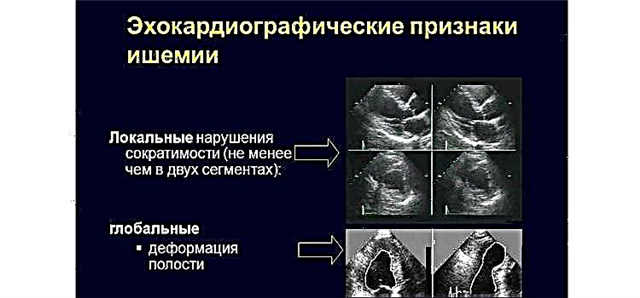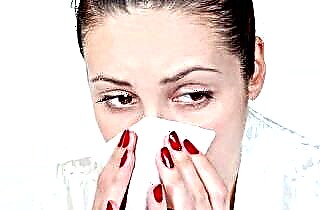Many do not consider tubo-otitis as a serious disease, since it occurs most often against the background of other diseases. But in fact, it can provoke purulent otitis media, inflammation and hardening of the tympanic membrane and lead to permanent hearing loss. How to treat Eustachitis and whether it can be done at home using folk remedies should be decided by a specialist after a thorough examination and comprehensive diagnosis. Wrongly chosen drugs can accelerate the development of the disease and greatly complicate its course.
How to treat tubo-otitis
 How to treat tubo-otitis depends on the nature of the disease and the reasons that caused it. The most effective is complex treatment, which helps to simultaneously solve several problems at once:
How to treat tubo-otitis depends on the nature of the disease and the reasons that caused it. The most effective is complex treatment, which helps to simultaneously solve several problems at once:
- stop the inflammatory process;
- quickly remove puffiness;
- restore the patency of the Eustachian tube;
- normalize blood circulation;
- activate immunity;
- clear the respiratory tract of mucus;
- accelerate the regeneration of mucosal cells;
- prevent possible complications.
But, of course, first of all, it is necessary to act directly on the cause of the disease, which can only be accurately determined by an experienced specialist.
So, with infectious etymology, antibiotics are prescribed for Eustachitis. And if the swelling and blockage of the auditory tube is due to allergic reactions, you will have to use antihistamines.
If microbes enter the mucous membrane of the ear canal due to chronic inflammation of the adenoids and / or tonsils, it is likely that an operation will be required to remove them.

Modern methods of treatment include not only medications, but also physiotherapy procedures. They activate the immune system, accelerate the processes of tissue regeneration and increase the intensity of the effect of the drugs used.
The course of physiotherapy is prescribed after the acute phase of the disease has passed and the body temperature is normalized.
Medicines
Only a doctor should decide how to treat Eustachitis. Medicines are selected strictly individually, depending on the symptoms and characteristics of the course of the disease. There are four types of medication commonly used:
 antibiotics;
antibiotics;- anti-inflammatory;
- vasoconstrictor;
- antipyretic.
Antibiotics for tubo-otitis in adults are prescribed for severe pain, fever and purulent discharge from the middle ear. These are usually broad-spectrum drugs. But to enhance their effectiveness, you can make an analysis for microflora and choose the most suitable drug. Most often, for the treatment of Eustachitis, the following are prescribed: "Amoclicillin", "Amoxil", "Gentamicin", "Biseptol", "Ceftriaxone" and others.
The standard course of treatment is 5 to 14 days. It is very important to go through it to the end. It often happens that pain symptoms and severe inflammation with complex treatment disappear within 2-3 days, but this does not mean recovery.
With self-withdrawal of the drug, you can provoke a relapse, which will lead to serious complications. Antibiotics for Eustachitis are not a mandatory component of treatment, often anti-inflammation agents can be dispensed with.
Anti-inflammatory drops for tubo-otitis allow you to quickly remove the redness of the tympanic membrane and reduce its tension. Most topical drugs contain lidocaine or other pain relieving components. The use of drops relieves swelling, improves blood circulation, restores patency.
 A doctor should prescribe ear drops for eustachitis. Most of them cannot be used for perforation or rupture of the tympanic membrane, and this is one of the most common complications of tubo-otitis. The most effective drops are: "Sofradex", "Tsipromed", "Normax", "Otofa", "Otipax". However, each of the drugs has its own characteristics of use and contraindications, which must be taken into account.
A doctor should prescribe ear drops for eustachitis. Most of them cannot be used for perforation or rupture of the tympanic membrane, and this is one of the most common complications of tubo-otitis. The most effective drops are: "Sofradex", "Tsipromed", "Normax", "Otofa", "Otipax". However, each of the drugs has its own characteristics of use and contraindications, which must be taken into account.
Vasoconstrictor drops for tubo-otitis help reduce mucous discharge and quickly eliminate nasal congestion. They relieve puffiness well and restore the patency of the ear canal. Most often appointed "Naftizin", "Otrivin", "Galazolin", "Sanorin", "Nazol". It is necessary to use such drops with caution - in case of an overdose, they cause dryness and irritation of the nasal mucosa.
Antipyretics are used only if the body temperature rises above 38.5 and / or lasts for 12 or more hours. Usually, with antibiotic treatment, the temperature drops on its own as the inflammatory process subsides. Therefore, their long-term use is impractical.
Folk ways
 Traditional methods of treating Eustachitis are effective only at the initial or final stage of the disease. If the inflammatory process is caused by pathogenic microorganisms, then in most cases it will be ineffective. They can also cause complications if there is a perforation or rupture of the tympanic membrane. Therefore, before starting to use them, it is necessary to accurately establish the diagnosis and cause of the disease. This can only be done by a doctor.
Traditional methods of treating Eustachitis are effective only at the initial or final stage of the disease. If the inflammatory process is caused by pathogenic microorganisms, then in most cases it will be ineffective. They can also cause complications if there is a perforation or rupture of the tympanic membrane. Therefore, before starting to use them, it is necessary to accurately establish the diagnosis and cause of the disease. This can only be done by a doctor.
Juice from onions or garlic and alcoholic tinctures of medicinal herbs (celandine, eucalyptus, St. John's wort) can replace antibiotics for tubo-otitis. They have pronounced bactericidal properties, improve blood circulation, and have an anti-inflammatory effect. 3-5 drops of the selected agent are instilled into the sore ear 2-3 times a day and the ear is closed with a cotton swab.
Treatment with boric alcohol is often used in the diagnosis of tubo-otitis, but it does not have bactericidal properties. But boric alcohol has a strong anti-inflammatory effect, heats the ear deeply and restores blood circulation well. Not recommended for irritated or overly sensitive skin.
 Good results are obtained by deep warming up the inflamed ear. But it can be done only if there is no purulent discharge. Otherwise, you can provoke a rapid spread of the infection, which can lead to serious complications such as meningitis and even sepsis (general infection of the blood). You can warm your ears with salt bags, a blue lamp, solux, paraffin or alcohol compresses.
Good results are obtained by deep warming up the inflamed ear. But it can be done only if there is no purulent discharge. Otherwise, you can provoke a rapid spread of the infection, which can lead to serious complications such as meningitis and even sepsis (general infection of the blood). You can warm your ears with salt bags, a blue lamp, solux, paraffin or alcohol compresses.
To strengthen the immune system, it is advisable to drink multivitamins or immunomodulatory drugs. They can be replaced by tinctures or decoctions of medicinal herbs: chamomile, calendula, sage, coltsfoot, St. John's wort.
Green tea with lemon and honey improves immunity well, which should be drunk warm, but not hot, so as not to destroy vitamins and bioflavonoids. But no matter what folk remedies you choose, you should definitely consult your doctor before using them.

 antibiotics;
antibiotics;

